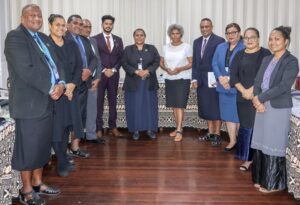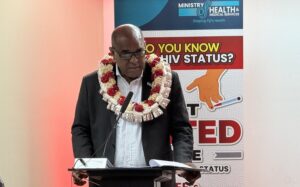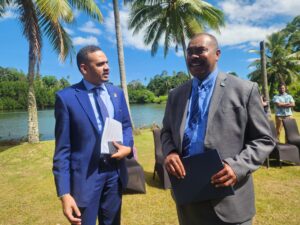Calls have been made to review increasing tuition charged by tertiary institutions, particularly those receiving government grants, a proposition Fiji’s Minister for Education Aseri Radrodro says could be considered in an ongoing review.
Acknowledging the need for better management of the high fees demanded by these institutions, Radrodro said it could be looked into as well in a review currently being carried out by the country’s Higher Education Commission. He was responding to concerns raised by Opposition MP Alvick Maharaj in a recent ministerial statement in which he also called for a review of the allocation and management of government grants to tertiary institutions.
Maharaj highlighted that private students are also significantly impacted by rising fees at these institutions, questioning the rationale behind government spending on both scholarships and substantial grants to these institutions.
“Government is providing scholarships to students, and paying tuition fee at a rate that is determined by the universities… and paying large sums as grant to tertiary institutions,” Maharaj stated, “if the taxpayers fund is not used to subsidise the students, then what is it given for? Is not there some kind of double dipping that the Government now provides full scholarship and paying large sums as grant to tertiary institutes? Around $160 million a year and then additional grants to tertiary institutions as well. Is this justified?.”
He also pointed out that the cost of a four-year Bachelor’s program in pharmacy, which he completed, is now equivalent to the tuition fees for just one year.
“How can we expect the parents of these 19,000 students to all of a sudden start paying tuition fees from their pockets, withdrawing from their savings in the banks and FNPF that was there to secure the parents’ future. If parents utilise their FNPF to pay for tuition fees, after retirement, they will not have any option but to fall back on the Government for social assistance thus increasing the burden on the Ministry of Social Protection.”
He proposed restructuring grants to subsidise private students’ tuition, improve lecturer salaries, and adjust allowances for scholarship students.
In response, Radrodro stated that while the Higher Education Commission of Fiji’s current legislation does not grant it the power to monitor fee increases directly, this issue could be considered in the ongoing review.
He agreed that universities regularly increase fees approved by their councils while simultaneously requesting grants.
“This needs to be managed better and hold the training institutions accountable and the Higher Education of Fiji, through the current review exercise, will ensure that strategies are identified and implemented that will have stronger accountability on the use of taxpayers’ funds. The Government representatives on the respective university councils continue to be vigilant with the increasing fees or changes in programmes.
“Government needs to consider investigating issues of increasing fees. The review of the university is currently being conducted by [an] external review team.”
Radrodro also addressed concerns about the management of grants, stating that these grants are based on detailed assessments of institutional needs and budgets by the Higher Education Commission of Fiji.
He said that the grants cover various operational costs, including salaries, program delivery, research, rent, utility bills, advertisements, and IT system upgrades.
“How do we determine how much should be given to each higher education institution? The process of grant is one of the Higher Education Commission Fiji’s mandated functions, as enshrined in their Regulation, is to analyse the grant usage from the previous year and following careful assessment by the team, their acquittal is submitted against their costed operation plan, the strategic plan, the budget, and that is when they decide the grant that is given to that training institutions. Of course, there will be a different amount given to higher education institutions which is based on the utilisation rate and the programmes that they run. For example, in the year 2024-2025, some education institutions requested higher amounts and some lower amounts. For example, for Fiji National University, Higher Education Commission of Fiji ascertains surplus funds from the analysis of their financials, then added back that surplus and then reduced the grants that are given to them. The Higher Education of Fiji’s legislation has provisions for fines and suspension of registration if any Higher Education institute is caught for fraudulent act.”
For the 2024-2025 financial year, government grants have been allocated to 13 training institutions, comprising three universities and ten smaller higher education institutes. Private students enrolled this year at the Fiji National University, the Univesity of Fiji and the University of the South Pacific stand at 18,989.









